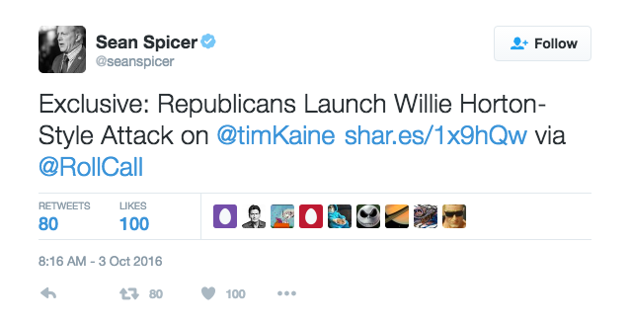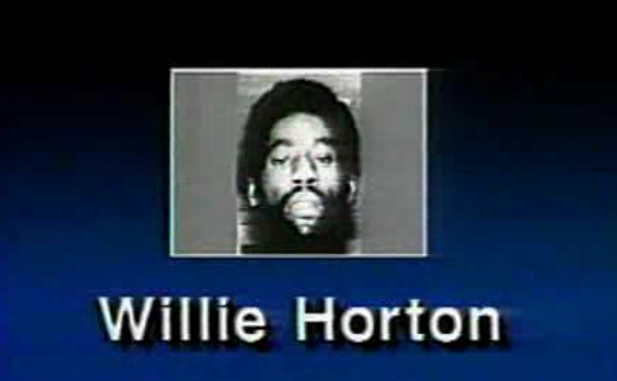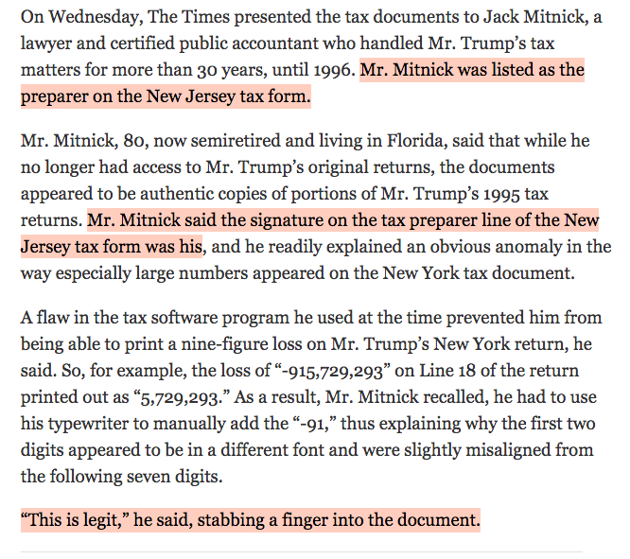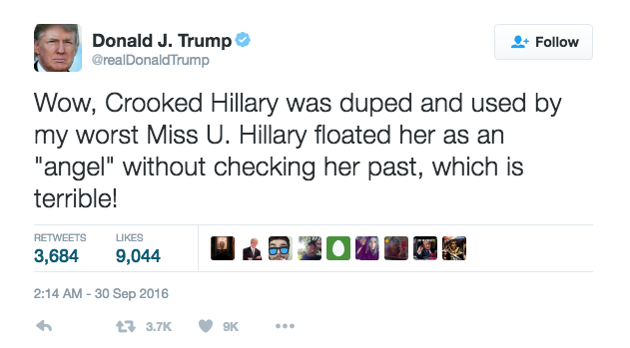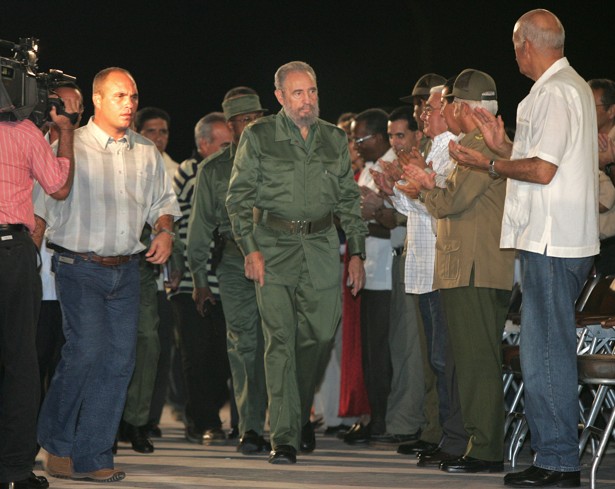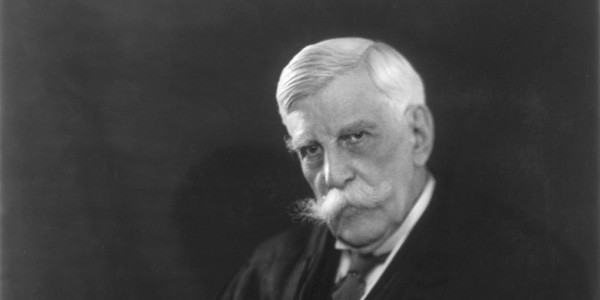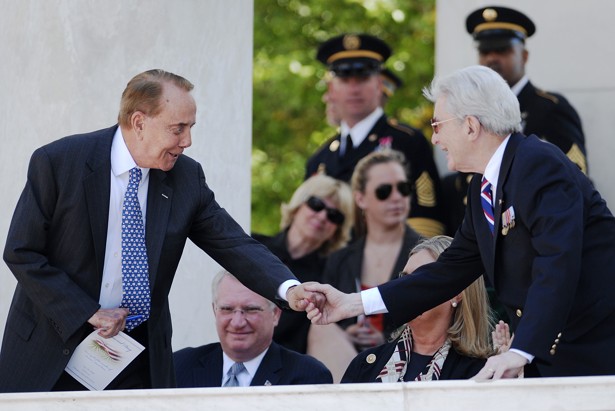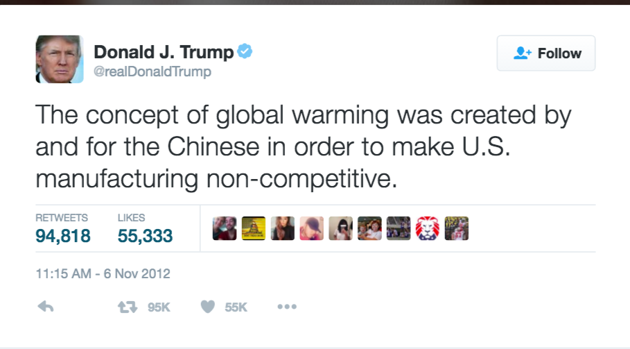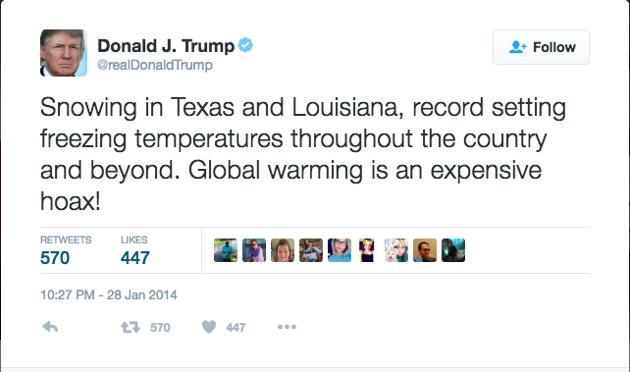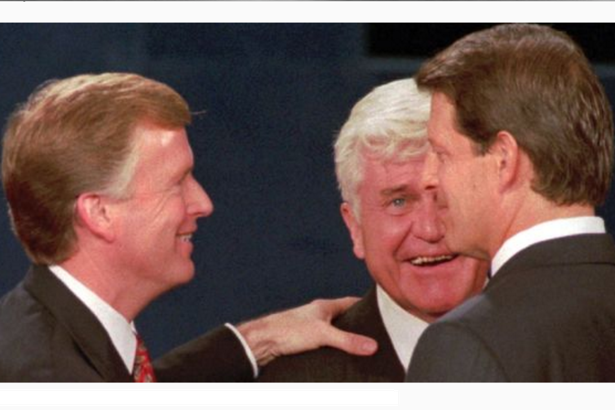Trump Time Capsule #125: Willie Horton
In the language of politics, to call a strategy a “Willie Horton-Style Attack” is to say that it’s race-baiting, vicious, and misleading. The reference is to two notorious ads, “Weekend Pass” and “Revolving Door,” used by George H.W. Bush’s Republicans in 1988 to attack his Democratic rival Michael Dukakis. You can see them and learn more details after the jump. This isn’t something normal people would brag about.
Yet just this morning, via tweet, the “strategist” and communications director for the Republican National Committee, Sean Spicer, announces that the party is about to kick off just such an attack, on Tim Kaine! Good lord.
By definition, this kind of attack strategy has been used before, as have smear campaigns through the history of politics. But the perpetrators used to deny them. The whole point of the “dog whistle” metaphor was that only the intended part of your audience would hear the message you were trying to send. Thus the George H.W. Bush campaign could pretend that the Willie Horton ad was strictly about criminal justice; it’s just coincidence that the criminal whose face they used happened to be a rough-looking black man.
So for Spicer to come right out with a proud-seeming announcement must mean either that he has lost his mind, or that the dynamics of his campaign and party now make this seem a sensible thing to say.
Here’s a screenshot of the original Willie Horton, as seen on TV—and then, why he’s not really “Willie.”
This quote from Horton after the ad came out underscores its intention:
The fact is, my name is not “Willie.” It’s part of the myth of the case. The name irks me. It was created to play on racial stereotypes: big, ugly, dumb, violent, black—“Willie.” I resent that. They created a fictional character—who seemed believable, but who did not exist.
“Weekend Passes” was produced by a GOP PAC. Here’s the full ad:
“Revolving Door” was the handiwork of the Bush campaign itself, including advisors Lee Atwater and—wait for it— Roger Ailes. Here it is:
***
Now the point: to run a “Willie Horton-style” campaign is bad enough. It’s meant to inflame racial resentments and fears. But saying you’re going to do it, and hailing that fact as an “exclusive,” travels from the realm of the reprehensible to the idiotic. It’s like an infomercial that begins, “We’re pushing a new scam!” Or like Bill Cosby showing up for a date and saying, “One sip of this drink and you’ll be out cold.”
They’re doing something nasty, and they’re doing it in the stupidest possible way.
Imagine what this team would be like in power.
Thirty-five days and a few hours until election day; only partial tax returns (1995!) released; and the likes of Paul Ryan saying, “He’s fine!”—Willie Horton announcement and all.
